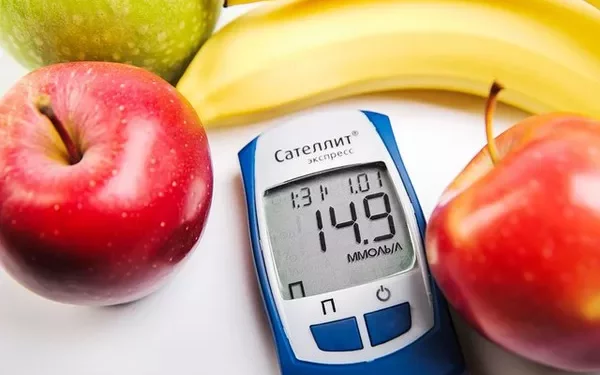Blood glucose, or blood sugar, is essential for the body’s function. It serves as the primary source of energy for cells, particularly for the brain, which relies almost exclusively on glucose for fuel. For individuals with diabetes or those closely monitoring their health, understanding the balance of blood glucose levels is key to maintaining overall well-being. But what happens when blood glucose drops too low? What is the minimum glucose level in the blood, and how does it affect the body? This article will explore the importance of blood glucose, the concept of low blood sugar, and strategies for managing and preventing hypoglycemia.
What Is Blood Glucose and Why Is It Important?
Blood glucose is the amount of sugar, in the form of glucose, circulating in the bloodstream. Glucose comes from the food we eat, primarily carbohydrates, which are broken down into glucose during digestion. This glucose is absorbed into the bloodstream, where it is distributed to cells for energy or stored for later use.
Maintaining stable blood glucose levels is critical for the body’s proper functioning. The body’s ability to regulate glucose is controlled by hormones, primarily insulin, produced by the pancreas. Insulin allows cells to absorb glucose from the blood, reducing blood sugar levels. When glucose levels are low, another hormone called glucagon signals the liver to release stored glucose back into the bloodstream, increasing blood sugar levels.
Normal blood glucose levels typically range from:
Fasting (before eating): 70 to 100 mg/dL (milligrams per deciliter) for individuals without diabetes
After eating (postprandial): Less than 140 mg/dL
For people with diabetes, target blood glucose levels may vary depending on individual health plans, but the overall goal is to maintain levels within a healthy range to avoid complications. However, when blood glucose levels drop too low, this can lead to a condition called hypoglycemia.
What Is Hypoglycemia?
Hypoglycemia refers to blood glucose levels that fall below the normal range. According to the American Diabetes Association (ADA), hypoglycemia is generally defined as a blood sugar level below 70 mg/dL. However, the severity of symptoms can vary depending on the individual and how quickly their glucose levels drop. Some people may experience symptoms at higher levels, while others may tolerate lower levels without noticeable effects.
The minimum glucose level in the blood that can be considered safe varies from person to person. For most healthy individuals, blood sugar levels typically remain above 70 mg/dL, even when fasting. When blood glucose drops below this threshold, the body may not have enough energy to perform essential functions, particularly in the brain.
The Threshold of Low Blood Sugar: 70 mg/dL
As mentioned, 70 mg/dL is commonly used as the cut-off point for low blood sugar. At this level, the body begins to experience difficulty in maintaining normal cellular function, and symptoms of hypoglycemia may start to appear. It’s important to note that hypoglycemia can be categorized into different stages depending on the severity:
Mild Hypoglycemia (60-70 mg/dL): Mild hypoglycemia often occurs when blood glucose drops slightly below 70 mg/dL. During this phase, the body typically responds by releasing counter-regulatory hormones like glucagon and adrenaline to raise blood sugar. Symptoms may include:
- Sweating
- Shakiness
- Hunger
- Dizziness
- Anxiety or nervousness These symptoms act as early warnings, prompting the individual to eat or drink something that can raise blood sugar levels.
Moderate Hypoglycemia (40-60 mg/dL): If blood glucose levels continue to fall and reach moderate hypoglycemia (below 60 mg/dL), the symptoms become more pronounced and the brain starts to be affected. At this stage, cognitive function is impaired, and individuals may experience:
- Difficulty concentrating
- Confusion
- Blurred vision
- Slurred speech
- Fatigue or weakness Immediate action is required at this point to prevent further decline.
Severe Hypoglycemia (Below 40 mg/dL): Severe hypoglycemia, which occurs when blood glucose levels drop below 40 mg/dL, is a medical emergency. At this point, the brain is deprived of the glucose it needs to function, and serious symptoms can occur, such as:
- Loss of consciousness
- Seizures
- Coma
- Death (in extreme cases) Immediate medical intervention is critical to restoring normal blood glucose levels and preventing long-term damage or fatality.
Causes of Low Blood Glucose
Several factors can contribute to hypoglycemia, including:
Medication: For individuals with diabetes, the most common cause of hypoglycemia is the use of insulin or other glucose-lowering medications. Insulin helps lower blood sugar, but if too much is administered, or if meals are missed, it can result in dangerously low blood sugar levels.
Skipping Meals or Eating Less: Not eating enough food, especially carbohydrates, or skipping meals can lead to low blood sugar. Carbohydrates are the body’s main source of glucose, and when they are absent from the diet, blood sugar can plummet.
Excessive Exercise: Physical activity causes the muscles to use glucose for energy, which can lead to lower blood sugar levels, especially if exercise is intense or prolonged. Without eating beforehand or adjusting medication, hypoglycemia can occur.
Alcohol Consumption: Drinking alcohol, particularly on an empty stomach, can interfere with the liver’s ability to release glucose into the bloodstream. This can increase the risk of hypoglycemia, especially in individuals taking diabetes medications.
Certain Medical Conditions: Conditions such as liver disease, adrenal insufficiency, and pancreatic tumors can affect the body’s ability to regulate blood sugar, potentially leading to hypoglycemia.
Symptoms of Hypoglycemia
Recognizing the symptoms of hypoglycemia is crucial for preventing severe outcomes. The symptoms can vary depending on the severity of the hypoglycemia, but they generally fall into two categories: early symptoms and late symptoms.
Early Symptoms:
- Sweating
- Trembling or shaking
- Hunger
- Palpitations
- Anxiety or irritability
- Tingling around the mouth These symptoms occur as the body’s response to low blood sugar, primarily due to the release of adrenaline, which stimulates the production of glucose.
Late Symptoms:
- Confusion
- Slurred speech
- Clumsiness
- Blurred vision
- Drowsiness
- Seizures
- Loss of consciousness These symptoms occur as glucose levels in the brain drop, impairing cognitive function and motor skills. Without treatment, severe hypoglycemia can lead to coma or death.
Long-Term Effects of Frequent Low Blood Glucose
Experiencing occasional hypoglycemia is not uncommon for people with diabetes who take insulin or other glucose-lowering medications. However, frequent episodes of hypoglycemia can have long-term consequences. These include:
Hypoglycemia Unawareness: Repeated episodes of low blood sugar can desensitize the body’s natural warning signs, making it harder to recognize when blood sugar is low. This condition, called hypoglycemia unawareness, increases the risk of severe hypoglycemia.
Cognitive Impairment: Research has shown that severe or prolonged hypoglycemia can lead to cognitive decline, particularly in older adults. The brain relies on glucose for energy, and repeated deprivation can impair memory, attention, and other cognitive functions.
Cardiovascular Complications: Low blood sugar can increase the risk of cardiovascular events, such as heart attacks and strokes, due to the release of stress hormones like adrenaline.
How to Treat Low Blood Glucose
Prompt treatment of hypoglycemia is essential to prevent it from progressing to a more severe stage. The general recommendation for treating mild to moderate hypoglycemia is to follow the 15-15 rule:
Consume 15 grams of fast-acting carbohydrates, such as:
- 4 glucose tablets
- 1/2 cup of fruit juice or regular soda
- 1 tablespoon of sugar or honey
- 6-7 hard candies
Wait 15 minutes and check blood sugar levels again. If blood sugar is still below 70 mg/dL, consume another 15 grams of carbohydrates and repeat the process until blood sugar is back to normal.
For severe hypoglycemia, when the individual is unable to eat or drink, glucagon injection or nasal glucagon spray may be necessary. Glucagon is a hormone that stimulates the liver to release stored glucose, raising blood sugar levels rapidly. It is essential that caregivers or family members of people with diabetes are trained to administer glucagon in case of emergency.
Preventing Hypoglycemia
Preventing low blood sugar is a critical aspect of diabetes management. Strategies to reduce the risk of hypoglycemia include:
Regular Monitoring: Frequent blood glucose monitoring, especially before and after meals, during exercise, and before bedtime, can help catch low blood sugar early and prevent it from progressing.
Adjusting Medications: Individuals on insulin or other diabetes medications should work with their healthcare provider to adjust dosages if they experience frequent hypoglycemia. Insulin pumps or continuous glucose monitors (CGMs) may offer more precise control of blood sugar levels.
Meal Planning: Eating regular meals and snacks that contain a balance of carbohydrates, proteins, and fats can help maintain stable blood sugar levels throughout the day.
Being Cautious with Alcohol: Limiting alcohol intake and avoiding drinking on an empty stomach can reduce the risk of alcohol-induced hypoglycemia.
Exercise Adjustments: People with diabetes should be aware of the impact of exercise on blood sugar levels. Eating a snack before exercise and monitoring blood sugar during and after physical activity can help prevent hypoglycemia.
See also: Does the New Apple Watch Check Blood Sugar?
Conclusion
The minimum glucose level in blood is generally considered to be 70 mg/dL. When levels fall below this threshold, hypoglycemia occurs, potentially leading to symptoms such as shakiness, confusion, and in severe cases, unconsciousness or death. Understanding the causes and symptoms of low blood sugar, along with proper treatment and prevention strategies, is essential for anyone managing diabetes or those at risk of hypoglycemia. With careful monitoring, lifestyle adjustments, and medical guidance, hypoglycemia can be effectively managed to ensure a safe and healthy life.
Related topics:
What Is the Limit of Sugar in Blood?



























